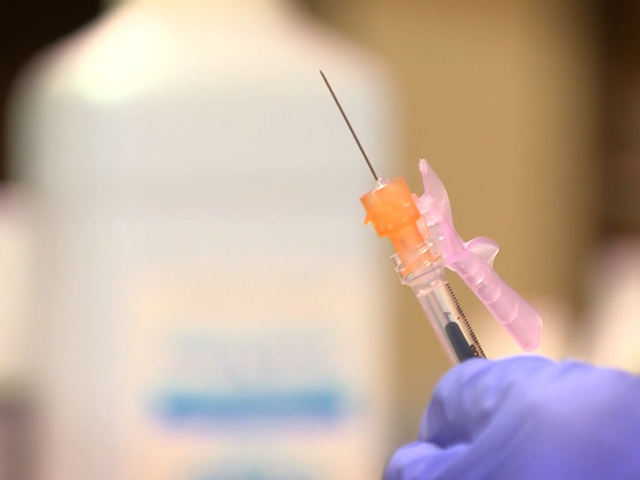This page highlights FRA activities to investigate the impact of the Coronavirus disease (COVID-19) on fundamental rights in the EU.
Sign up to receive alerts on FRA’s COVID-19 project and other work.
Highlights

Video - 11 July 2022
Video blog by Michael O'Flaherty: Respecting rights and managing Covid-19
In this vlog, FRA Director Michael O'Flaherty, points to the need to recommit to human rights, as evidenced by the wide-ranging impact of the Covid-19 pandemic. Here he refers to vaccine inequalities and the impact on marginalised communities, disadvantaged children and frontline workers. As he explains in this vlog, human rights can help fix and strengthen society so we are ready for the next pandemic.
News - 8 June 2022
Social rights and equality in the light of the recovery from the COVID-19 pandemic
This focus looks at the impact of the pandemic on social rights. It examines the measures in national recovery and resilience plans that address the social vulnerabilities among a variety of population groups in the EU, including women, children and young people in situations of vulnerability, people with disabilities, older people, Roma and people in precarious working conditions.
Recent updates
News item - 10 December 2021
Civil society discusses the impact of Covid-19
On 7 December, the FRA Director addressed the EU NGO Forum. This year it focused on a human rights-based recovery from the pandemic. The Forum provided a platform for civil society organisations from across the world to recommend how the EU can better protect civic space worldwide, both online and offline. It also offers an opportunity to address inequalities and shortfalls in human rights protection by promoting a rights-based recovery, including strengthening healthcare and decent work for everyone. The European External Action Service and the European Commission Forum organise the event annually. They did it in partnership with the Human Rights and Democracy Network - a network of EU-level NGOs working on human rights, democracy and peace.
News item - 10 December 2021
Advancing human rights makes for a better society
The Coronavirus pandemic exposed sharp socio-economic inequalities across Europe. Roma children, migrants, people with disabilities, just some of the already marginalised groups that further bore the brunt of the impact of the pandemic. Human Rights Day is a chance to remind ourselves of how reducing inequalities can build more equal societies and a better world. Advancing rights can offer hope and opportunity to millions through equal access to such primary services like education, jobs and healthcare.
Video - 30 July 2021
How does Covid-19 affect young people?
The Coronavirus pandemic strongly affected young people. They are frequently blamed for spreading the virus. They also face widespread unemployment. In this vlog, FRA Director Michael O’Flaherty points to the need to address such challenges. On FRA’s side, young people, as human rights champions, will be at the heart of the debate at the Fundamental Rights Forum from 11 to 12 October.
Report - 16 June 2021
Coronavirus pandemic in the EU - Fundamental Rights Implications: Vaccine rollout and equality of access in the EU - Bulletin 7
This Coronavirus Bulletin focuses on equitable access to vaccines. It outlines the situation in the 27 EU Member States from 1 March to 30 April 2021. The bulletin looks at two main areas: planning and prioritisation in deploying Covid-19 vaccinations and their rollout in the countries. It covers information and communication campaigns, as well as (pre)registration channels for and the administration of vaccinations.
News item - 10 June 2021
On the road to a rights-based recovery from COVID-19
The COVID-19 pandemic exposed gaps in respecting the fundamental rights to health, education, employment and social protection across society. FRA’s Fundamental Rights Report 2021 plots the pandemic’s wide-ranging impact on rights and suggests how best to address increasing inequalities and threats to societal cohesion.
Event - 12 March 2021
EESC event looks at COVID-19 challenges civil society
FRA Director Michael O’Flaherty will be one of the inaugural speakers at an event to discuss challenges and the future for civil society organisations during and after COVID-19.
Event - 10 March 2021
UN Regional Sustainable Development Forum looks to human rights in COVID-19 recovery
FRA will present findings from its work on the impact of COVID-19 on fundamental rights during the UNECE Regional Forum on Sustainable Development. It will be part of discussions on 10 March on how human rights can guide sustainable recovery. FRA will also draw on its work on implementing the Sustainable Development Goals in the EU. The event focuses on how to ensure that the principle of leaving no-one behind is entrenched in COVID-19 recovery strategies and plans.
News item - 5 March 2021
Findings from FRA consultation on COVID-19 impact on civil society
FRA has just released key findings from its consultation with its Fundamental Rights Platform on the impact of COVID-19 measures on the work of human rights civil society.
Video - 18 February 2021
Video blog Michael O'Flaherty: Covid-19 and vaccine equality
FRA Director Michael O'Flaherty calls for making Covid-19 vaccine equality a top priority for 2021.
News item - 4 February 2021
EU Migration Preparedness and Crisis Management Mechanism
FRA gave a presentation on good practices to protect and promote human rights during and after COVID during the EU Migration Preparedness and Crisis Management Mechanism (Blueprint) Network meeting on 4 February.
Report - 30 November 2020
Coronavirus pandemic in the EU - Fundamental Rights Implications - Bulletin 6
This report outlines some of the measures EU Member States have put in place to protect public health as Europe faces the ‘second wave’ of the Coronavirus pandemic. It highlights how these may affect fundamental rights, especially social rights.
Report - 29 September 2020
Coronavirus pandemic in the EU – impact on Roma and Travellers - Bulletin 5
Often living in substandard and overcrowded housing conditions, Roma and Travellers face an increased risk of contracting COVID-19. They are also disproportionately affected by measures taken to contain the virus. This FRA Bulletin takes a closer look at this reality in 15 EU Member States, focusing on education; employment; poverty; healthcare; housing; and anti-Gypsyism. It also outlines civil society efforts to tackle the diverse challenges triggered by the Coronavirus pandemic.
Report - 29 July 2020
Coronavirus pandemic in the EU - Fundamental Rights Implications - Bulletin 4
As we enter the second half of 2020, the constraints on our daily lives brought about by the Coronavirus pandemic have become a firm reality. New local lockdowns and the reintroduction of restrictive measures prompted by fresh outbreaks of the virus are a stark reminder that COVID-19 continues to shape our lives – and our enjoyment of fundamental rights – in profound ways. There is compelling evidence of how the pandemic has exacerbated existing challenges in our societies. This FRA Bulletin outlines some of the measures EU Member States adopted to safely reopen their societies and economies while continuing to mitigate the spread of COVID-19. It highlights the impact these measures may have on civil, political and socioeconomic rights.
Report - 30 June 2020
Coronavirus pandemic in the EU - Fundamental Rights Implications - Bulletin 3
The Coronavirus pandemic continues to interrupt everyday life in the EU in unprecedented ways. But the way it affects our societies is shifting. As governments gradually lift some of the measures put in place to contain the spread of COVID-19, new fundamental rights concerns arise: how to ensure that the rights to life and health are upheld as daily life transitions to a ‘new normal’. This Bulletin looks at declarations of states of emergency, or equivalent, and how they came under scrutiny. It considers the impact on fundamental rights in important areas of daily life, and includes a thematic focus on the pandemic's impact on older people.
Report - 28 May 2020
Coronavirus pandemic in the EU - Fundamental Rights Implications - Bulletin 2
The Coronavirus pandemic continues to interrupt everyday life in the EU in unprecedented ways. But the way it affects our societies is shifting. As governments gradually lift some of the measures put in place to contain the spread of COVID-19, new fundamental rights concerns arise: how to ensure that the rights to life and health are upheld as daily life transitions to a ‘new normal’. This Bulletin looks at declarations of states of emergency, or equivalent, and how they came under scrutiny. It considers the impact on fundamental rights in important areas of daily life, and includes a thematic focus on the processing of users’ data to help contain COVID-19, particularly by contact-tracing apps. It covers the period 21 March – 30 April 2020.
Report - 8 April 2020
Coronavirus pandemic in the EU - Fundamental Rights Implications - Bulletin 1
The outbreak of COVID-19 affects people’s daily life in the 27 EU Member States. As the number of infected people in the EU territory began to mount rapidly in February and March, governments put in place a raft of measures – often introduced in a period of only a few days – in an effort to contain the spread of the virus. Many of these measures reflect how, in exceptional emergency situations, the urgent need to save lives justifies restrictions on other rights, such as the freedom of movement and of assembly. This report outlines some of the measures EU Member States have put in place to protect public health during the COVID-19 pandemic. It covers the period 1 February – 20 March 2020.

